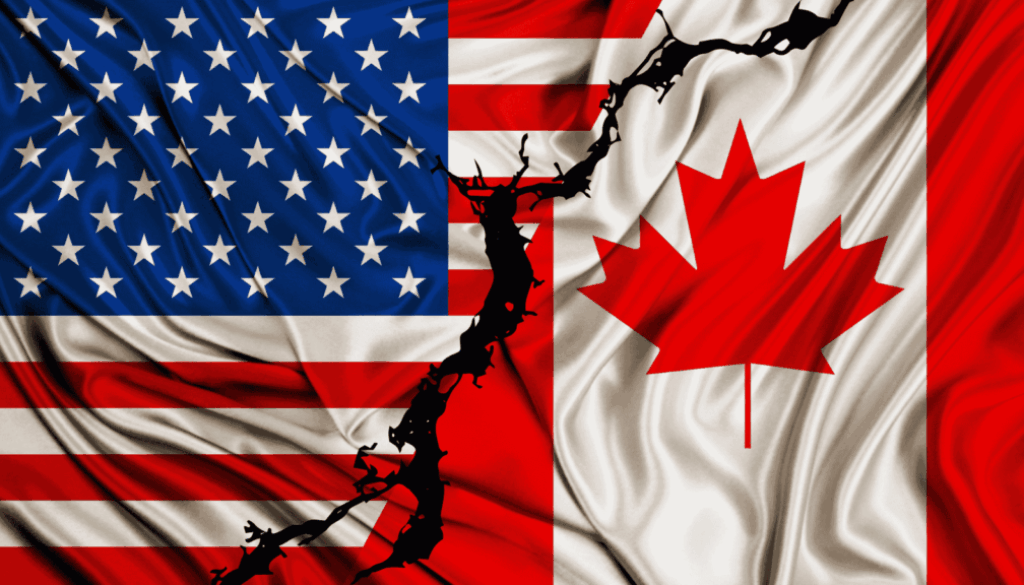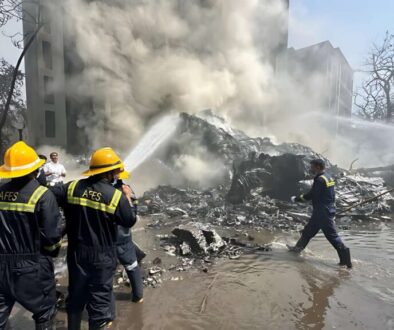New U.S. Advisory for Canada: Message of Reassurance
U.S. Travel Advisory Now Includes Canada — What It Means
In June 2025, the U.S. Department of State issued new travel advisories for several nations — including Poland, Qatar, and Thailand. The latest addition to the list is Canada, which received a Level 1 travel advisory on June 11.
A Level 1 advisory indicates that the destination is still considered safe, but U.S. citizens should practice standard precautions while traveling.
What Exactly Is a Travel Advisory?
Travel advisories are warnings issued to U.S. citizens traveling abroad. These include risk assessments and precautionary measures. The Department of State emphasizes that protecting American citizens abroad is a top priority.
Tips for U.S. Citizens Traveling to Canada This Summer
If you’re a U.S. citizen heading to Canada, here are the actions recommended by the U.S. State Department:
- ✅ Enroll in the Smart Traveler Enrollment Program (STEP) to get real-time alerts and emergency support.
- ✅ Review the Country Security Report for Canada.
- ✅ Create a basic emergency plan, including backup communication and essential items.
- ✅ Monitor the CDC Travel Health Notices before and after your trip.
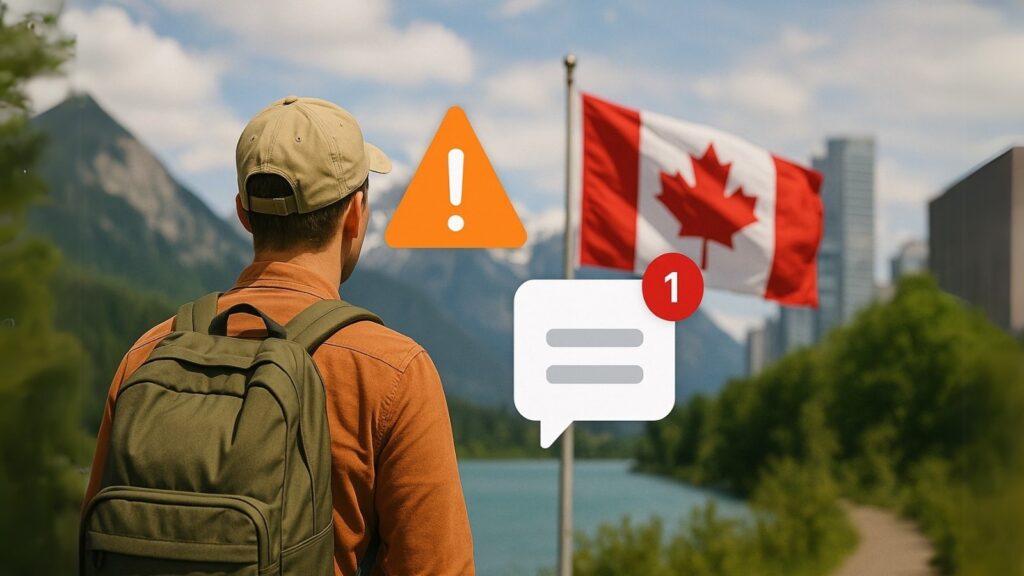
Wildfires — A Seasonal Concern
From May to September, wildfires are common across forested and grassland regions in Canada. In 2024, record-breaking fires impacted all 13 provinces and territories.
The advisory reads:
“We urge U.S. citizens visiting or living in Canada to be aware of wildfire conditions in their area and follow guidance from local authorities.”
U.S. Government’s Emergency Prep Advice:
- 📞 Dial 911 in Canada for police, ambulance, or fire emergencies.
- 📚 Read the “Crisis and Disaster Abroad” page for planning tips.
- 🔥 Follow Canadian wildfire protocols before, during, and after any incident.
- 💉 Visit the CDC travel health page for medical guidance and return travel info.
- 📑 Review the updated Country Security Report for real-time safety measures.
Canada Pushes Back: “U.S. Border May Not Be Welcoming”
Shortly after the U.S. issued its advisory, Canada updated its own travel guidance — cautioning Canadians about possible detainment and increased scrutiny at U.S. borders.
The advisory mentions potential searches of electronic devices and the risk of being denied entry, following recent reports of Canadian travelers having phones searched or being temporarily detained.
U.S. Ambassador Responds: “America Is Still a Welcoming Place”
In response, U.S. Ambassador to Canada Pete Hoekstra offered a reassuring message to Canadian travelers:
“We welcome Canadians — whether they come to invest or spend their hard-earned Canadian dollars in U.S. businesses.”
He added:
“If a Canadian had a disappointing experience, I’m not saying it didn’t happen — but it’s an isolated case, not a trend.”
Is Scrutiny at the Border a New Norm?
Hoekstra firmly denied that searching devices or detaining Canadians was standard practice:
“This is not a well-founded fear. We don’t do that. America is still a welcoming place.”
Interestingly, he mentioned that some Americans had also shared concerns about entering Canada, saying they didn’t receive a warm reception from Canadian customs officials.
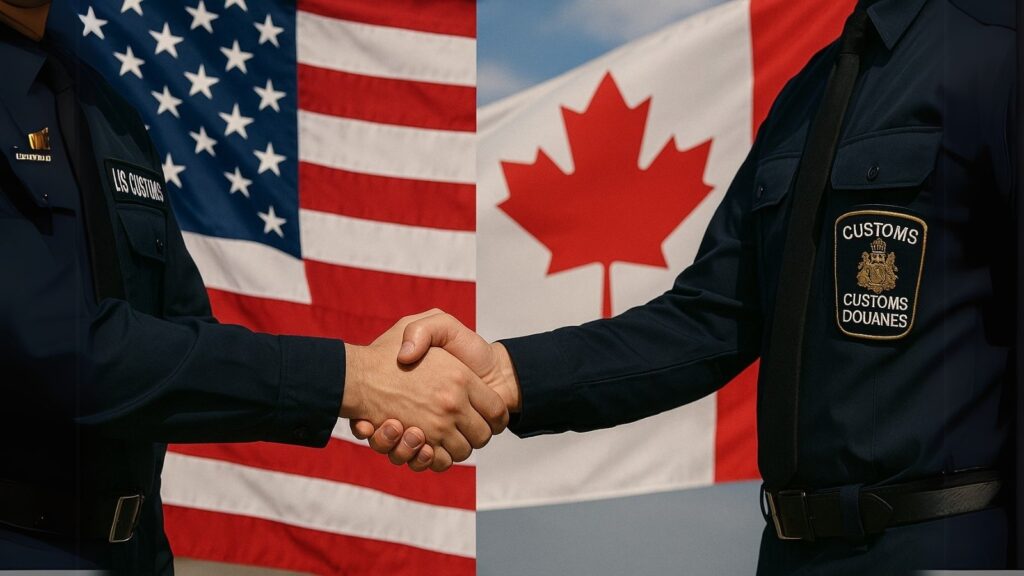
Are These Isolated Cases or a Bigger Issue?
When questioned about American travelers facing phone checks or detentions, Hoekstra admitted a few consular complaints had been logged but described them as “one-offs.”
“Maybe a border officer was just having a bad day. But this does not reflect official policy or regular practice,” he said.
CBSA Responds with Commitment to Professionalism
The Canada Border Services Agency (CBSA) responded to Hoekstra’s comments with a clear statement:
“All employees are expected to uphold integrity, respect, and professionalism in every interaction,” said CBSA spokesperson Karine Martel.
CBSA emphasized non-discriminatory service and fair treatment for all travelers.
“Travel or Not — It’s Your Choice,” Says Hoekstra
Hoekstra left the decision to travel up to individuals, stating:
“If you decide not to come, that’s your choice — but you’re missing out. There’s so much to explore in America.”
He also referenced CNN journalist Christiane Amanpour, who traveled with a “burner phone” out of privacy concern but reported a pleasant travel experience.
Travel Data Shows a Sharp Decline in Cross-Border Visits
Travel between the two countries has seen a notable drop:
- ✈️ Flight Centre Travel Group Canada reported a 40% decline in Canada–U.S. flights (year-over-year in February).
- 🛫 Airlines have cut several routes due to low demand.
Canadian Sentiment Turning Cautious
A Leger survey conducted in early May revealed:
- 52% of Canadians feel the U.S. is no longer safe for all Canadian travelers.
- 29% disagreed with that sentiment.
- 19% remained unsure.
- A similar number said they personally feel unwelcome in the United States.
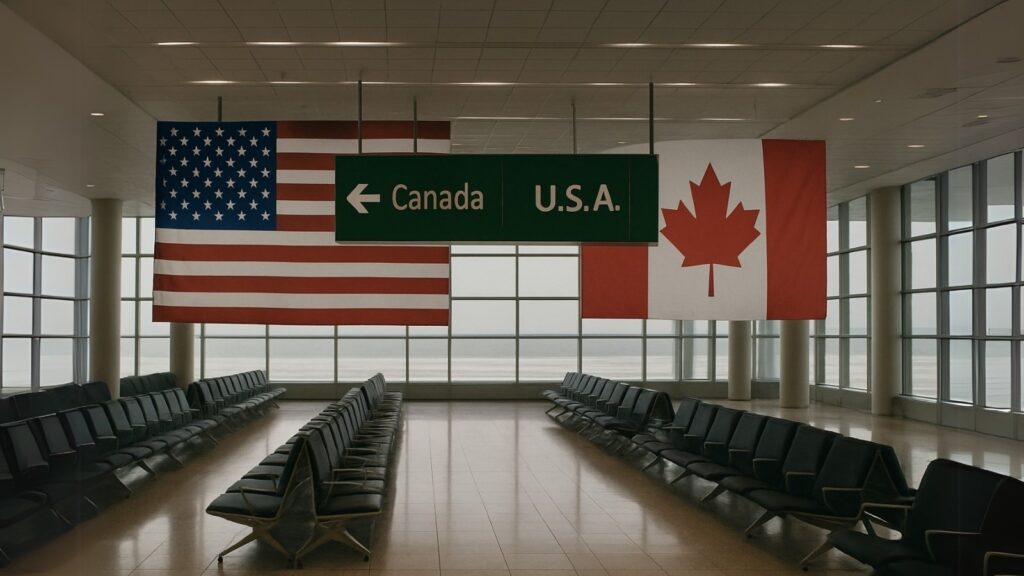
LGBTQ2S+ Groups Reconsider U.S. Events
Due to concerns about border scrutiny and reduced protections for transgender and nonbinary individuals in the U.S., some LGBTQ2S+ groups have opted out of major events like:
- 🌈 World Pride in Washington
- 🏛 United Nations functions in New York
Final Thoughts — Bridging Caution With Reassurance
While both nations exchange travel advisories and political responses, the core message remains: personal safety and preparedness are key.
U.S. travelers to Canada should remain informed about natural threats like wildfires. At the same time, Canadian citizens must weigh the recent scrutiny reports against personal experiences and data.
Both sides — diplomatically and practically — seem to be encouraging openness, awareness, and respect.
You May Also Like to read:
Buga Colombia UFO Sphere: 5 Shocking Facts You Must Know
Is Walmart Open on Memorial Day 2025? 7 Key Things to Know
